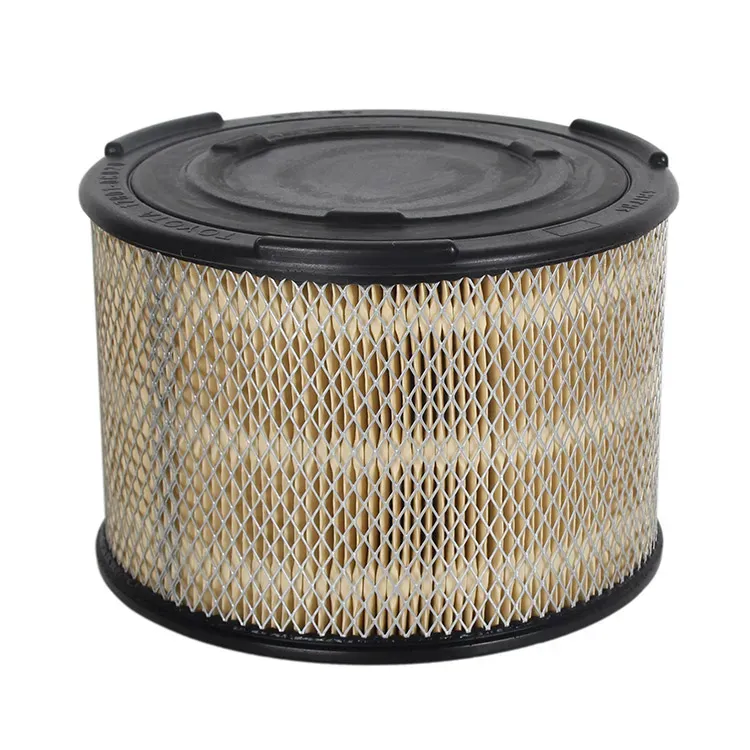
Modern vehicles demand high-performance components not only for speed and safety but also for environmental control. The air quality inside your vehicle significantly affects comfort, concentration, and long-term health. From air filters to purifiers, automotive filtration systems are evolving rapidly, helping drivers breathe easier and engines run more efficiently. Understanding the cost and value of these components is essential for making informed decisions about vehicle maintenance and upgrades.

Engine Protection Starts by Understanding Car Engine Air Filter Price and Performance Balance
Maintaining engine health is impossible without addressing the car engine air filter price in relation to its quality and filtration level. A high-performance air filter ensures that contaminants like dust, debris, and pollen don’t enter the combustion chamber, where they could affect fuel efficiency and engine wear. While basic models cost less, premium filters with multi-layer designs and higher dust-holding capacity often pay off in longevity and reduced service intervals.
Value Over Time Is Reflected in Car Air Filter Replacement Price and Lifespan
Considering the car air filter replacement price helps drivers plan maintenance costs and optimize engine performance. Although prices vary based on the make and model of the vehicle, the frequency of replacement has a significant impact. Many economy filters need to be changed every 10,000 km, while higher-end filters can last up to 30,000 km with consistent performance. Investing in better filters not only reduces fuel consumption but also extends the life of related engine components.
Comfort Meets Technology in the Midrange Air Purifier for Car Price Segment
Today’s consumers increasingly prioritize cabin air quality, making the air purifier for car price a relevant consideration for urban drivers and long-distance commuters. These compact units remove allergens, cigarette smoke, pollutants, and even viruses using HEPA filtration, activated carbon, and ionization technologies. In the mid-range price bracket, buyers can expect features like real-time air quality monitoring, automatic mode switching, and quiet operation, ensuring both efficiency and comfort.
Premium Options Justify the Air Purifier Car Price with Smart Features
If convenience and enhanced purification are priorities, then the higher air purifier car price of advanced models can be justified. These devices often include smartphone app integration, automatic shut-off when the vehicle is off, and multi-stage purification systems tailored for varying environments. While budget options start at lower price points, premium purifiers provide peace of mind during allergy seasons or in cities with high pollution levels, making them a worthwhile investment for health-conscious drivers.
Navigating Choices Begins by Knowing the Types of Air Filter in Automobile Applications
To choose the best solution, it’s essential to explore the types of air filter in automobile systems and their respective roles. The primary categories include:
Engine Air Filters – Prevent contaminants from entering the engine’s air intake system
Cabin Air Filters – Protect passengers from dust, pollen, and pollution
Fuel Filters – Ensure clean fuel reaches the combustion chamber
Oil Filters – Trap debris and impurities within engine oil
Performance Filters – Designed for enhanced airflow and horsepower
Understanding these distinctions helps in selecting the right product for specific goals, whether it's better engine efficiency or cleaner air inside the cabin.
Are Engine and Cabin Air Filters Interchangeable?
No. Engine filters protect internal engine components, while cabin filters improve in-cabin air quality. Each serves a distinct purpose and should not be interchanged.
How Often Should I Replace an Engine Air Filter?
Most manufacturers recommend replacement every 10,000–15,000 kilometers, but this depends on driving conditions and air quality in your region.
Do Air Purifiers for Cars Really Work in Polluted Cities?
Yes. Models with HEPA filters and activated carbon layers significantly reduce particulate matter, odors, and harmful gases, especially in high-traffic urban zones.
Automotive Air Filter and Purifier FAQs
Q: What affects the car engine air filter price the most?
A: Material type, brand, filtration efficiency, and compatibility with your car model determine the price range. Filters with higher-grade media and OEM certification typically cost more.
Q: Is the car air filter replacement price worth the investment in premium filters?
A: Yes, premium filters can extend engine life, enhance mileage, and reduce the frequency of replacements—making them more cost-effective in the long term.
Q: How can I compare air purifier for car price options effectively?
A: Consider filter technology (HEPA vs. ionizer), coverage area (small vs. SUV-sized cabin), noise levels, energy efficiency, and smart features before comparing prices.
Q: Why does the air purifier car price vary so widely?
A: Features like smart sensors, app control, UV-C sanitization, and longer-lasting filters increase both the production cost and the market price of car air purifiers.
Q: Which types of air filter in automobile setups require the most frequent attention?
A: Cabin air filters often need replacement more frequently than engine filters in dusty or polluted areas, especially if the air conditioning is used heavily.
-
Vehicle Performance with Premium Car Filter SolutionsNuachtJul.02,2025
-
Upgrade Engine Performance with Timely Air Filter MaintenanceNuachtJul.02,2025
-
Optimize Vehicle Health with Timely Air Filter ReplacementNuachtJul.02,2025
-
Every Drive with Next-Level Car Filtration SystemsNuachtJul.02,2025
-
Driving Comfort with Advanced Air Filtration SystemsNuachtJul.02,2025
-
The Importance of Cabin Filter and Engine Filter: The Role and Maintenance of Cabin Filter and Engine FilterNuachtJun.25,2025
-
Gasoline Filter: Key link to ensure the safety of automotive enginesNuachtJun.25,2025
Gaolmhar Táirgí




